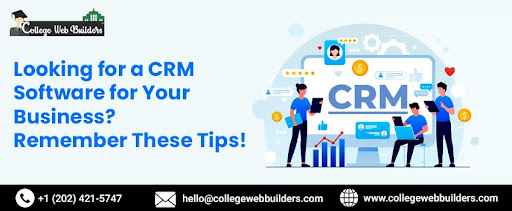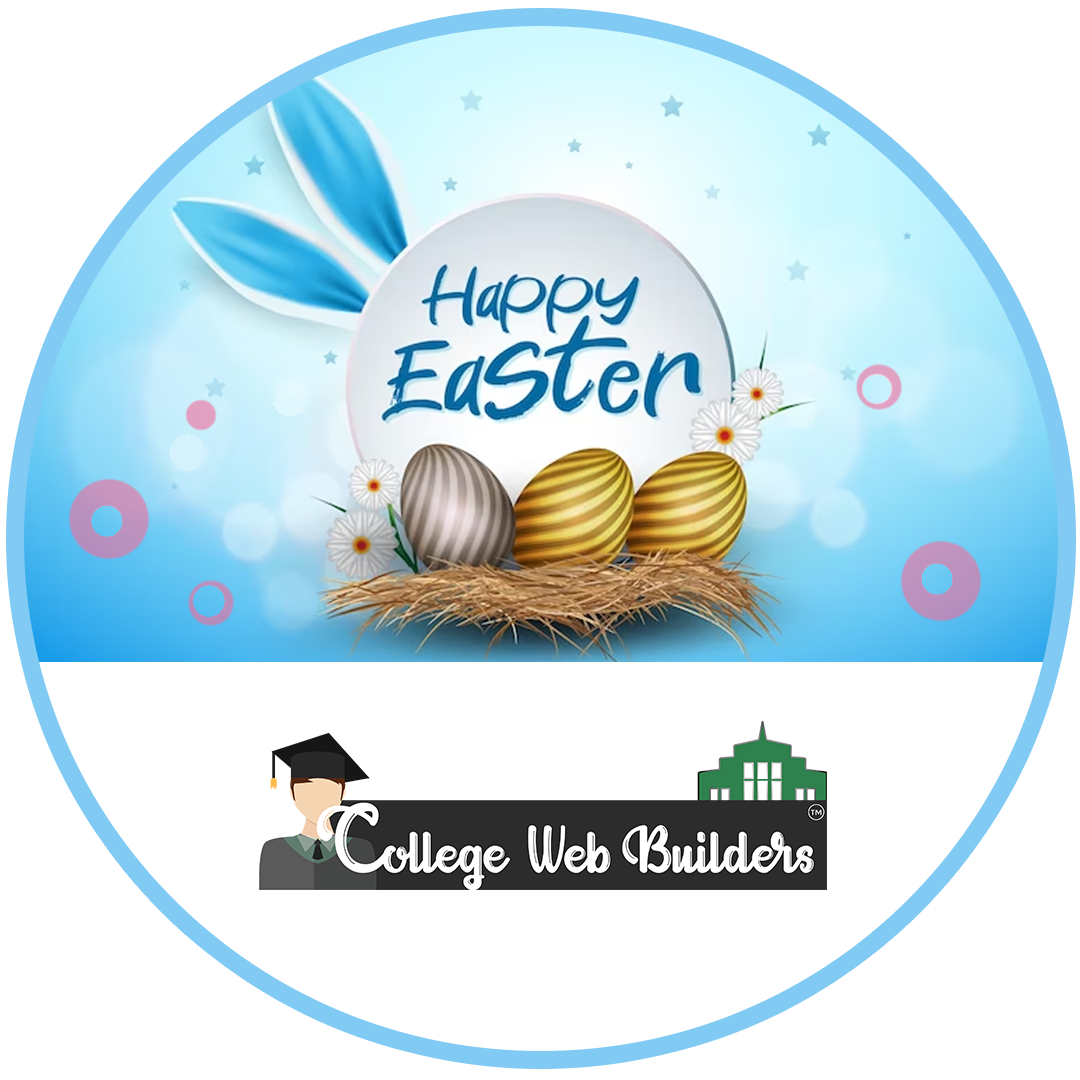
Looking for a CRM Software for Your Business? Remember These Tips!
In today's fast-paced business environment, managing customer relationships efficiently has never been more critical. To stay competitive, companies of all sizes are turning to Customer Relationship Management (CRM) software to streamline their processes, enhance customer satisfaction, and boost overall productivity. Choosing the right CRM software development company for your business can be a game-changer, but it's not a decision to be taken lightly. In this blog, explore the essential tips to keep in mind when searching for the perfect CRM software to meet your specific business needs.
What is CRM Software?
Before diving into the tips, let our CRM development company Ashburn USA clarify what CRM software is. CRM software is a technology solution that helps businesses manage and analyze their interactions with current and potential customers. It's designed to optimize sales, improve customer service, and drive marketing efforts through the centralization and organization of customer information. CRM software typically includes features like contact management, lead tracking, sales forecasting, and more, all aimed at improving customer relationships.
Tip 1: Understand Your Business Needs
The first step in choosing the right CRM software is to understand your business needs. Every business is unique, and the CRM software that works for one might not be suitable for another. Start by identifying your specific goals and challenges. Are you looking to increase sales, provide better customer support, or improve marketing campaigns? Understanding your business needs and meeting with a CRM software company will help you focus on the features and capabilities that matter most.
Tip 2: Define Your Budget
CRM software solutions come in various price ranges, from free and open-source options to high-end enterprise solutions. It's essential to establish a clear budget for your CRM software purchase. Consider not only the initial cost but also ongoing fees, such as subscription fees, maintenance, and support. Your budget will play a significant role in narrowing down your options.
Tip 3: Choose the Right Deployment Option
CRM software can be deployed in different ways: on-premises, cloud-based (SaaS), or a hybrid model. Each deployment method has its advantages and drawbacks. On-premises solutions offer more control but require a significant upfront investment in hardware and maintenance. Cloud-based solutions, on the other hand, are scalable, cost-effective, and accessible from anywhere with an internet connection. The choice between these options depends on your business's unique requirements, infrastructure, and preferences.
Tip 4: Consider Scalability
Your business is likely to grow over time, and your CRM software should be able to grow with you. Look for a CRM solution that is scalable and can adapt to your changing needs. Ensure that the software can accommodate more users, data, and integrations as your business expands.
Tip 5: Integration Capabilities
Effective CRM software should be able to integrate with other tools and software that your business uses. Whether it's email marketing platforms, accounting software, or e-commerce solutions, seamless integration can help you create a unified ecosystem. This is crucial for streamlining processes, minimizing data entry, and ensuring that your CRM software is a central hub for all customer-related activities.
Tip 6: User-Friendly Interface
Ease of use is a critical factor when choosing CRM software. A user-friendly interface ensures that your team can quickly adapt to the new system and start benefiting from it without extensive training. Conduct trials or demos to evaluate the software's user experience and how well it aligns with your team's needs and expectations.
Tip 7: Mobile Accessibility
In today's mobile-driven world, having access to your CRM data on the go is essential. Make sure the CRM software you choose offers mobile apps or a responsive web interface, allowing your team to access and update customer information from smartphones and tablets. This flexibility enhances productivity and ensures that your team can stay connected with clients even when they're not in the office.
Tip 8: Customization Options
Every business operates differently, and your CRM software should accommodate your unique processes and workflows. Look for CRM solutions that offer customization options, allowing you to tailor the software to your specific requirements. This can include custom fields, forms, and automation rules to match your business's exact needs.
Tip 9: Reporting and Analytics
Data is a valuable resource for improving your customer relationships and business performance. Choose CRM software that provides robust reporting and analytics features. These tools allow you to track sales, customer interactions, marketing campaigns, and other key metrics. Data-driven insights enable you to make informed decisions and continuously refine your strategies.
Tip 10: Security and Compliance
Data security and compliance are non-negotiable when it comes to CRM software. Your customers' information is sensitive, and it's your responsibility to protect it. Ensure that the CRM software you choose meets industry-standard security protocols and compliance requirements, especially if you handle data subject to regulations like GDPR or HIPAA.
Tip 11: Customer Support and Training
Effective customer support and training resources are essential when implementing CRM software. Look for vendors that offer robust customer support, including online documentation, video tutorials, and responsive customer service. Adequate training ensures that your team can maximize the software's potential and address any issues or questions that may arise.
Tip 12: Read Reviews and Seek Recommendations
Before making a final decision, research and read reviews of CRM software solutions. Platforms like G2, Capterra, and TrustRadius provide user-generated reviews and ratings. Additionally, seek recommendations from colleagues and businesses in your industry who have successfully implemented CRM software. Real-world experiences can provide valuable insights and help you avoid potential pitfalls.
Tip 13: Start with a Trial Period
Many CRM software providers offer trial periods or free versions of their software. Taking advantage of these opportunities can be a great way to test the software's features and functionality in a real-world context. Use this time to evaluate how the CRM solution aligns with your business's needs and objectives.
Tip 14: Plan for Data Migration
If you're transitioning from an existing system or spreadsheets to a CRM solution, plan for data migration. Ensure that your chosen CRM software provides tools and support for migrating your existing data seamlessly. Accurate data migration is crucial to maintaining historical customer information and avoiding disruptions in your operations.
Tip 15: Involve Your Team in the Decision
Ultimately, your team will be the ones using the CRM software daily. Involving them in the decision-making process and considering their input is essential. They can provide valuable insights and help you choose a CRM solution that meets their needs and preferences.
Conclusion
Selecting the right CRM development company for your business is a pivotal decision that can significantly impact your customer relationships and overall efficiency. By understanding your business needs, defining your budget, considering deployment options, and evaluating factors like scalability, integration capabilities, and customization, you can make an informed choice.
Remember that CRM software is a powerful tool designed to enhance your customer relationships, streamline your processes, and boost your business. Taking the time to carefully research and select the right CRM solution will contribute to your success and ensure that your investment in CRM technology is a wise one. Make your decision with confidence, knowing that you've chosen the CRM software that best aligns with your business's goals and objectives. For more information or to avail services of our CRM software development company, visit Collegewebbuilders.com .
- Tags: Marketing, Onlline, Internet





